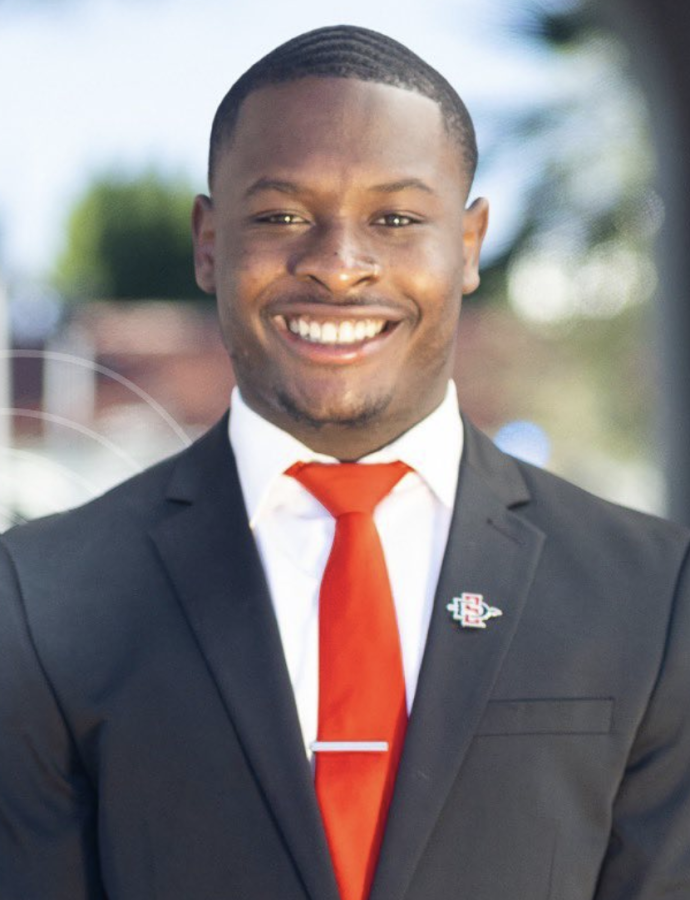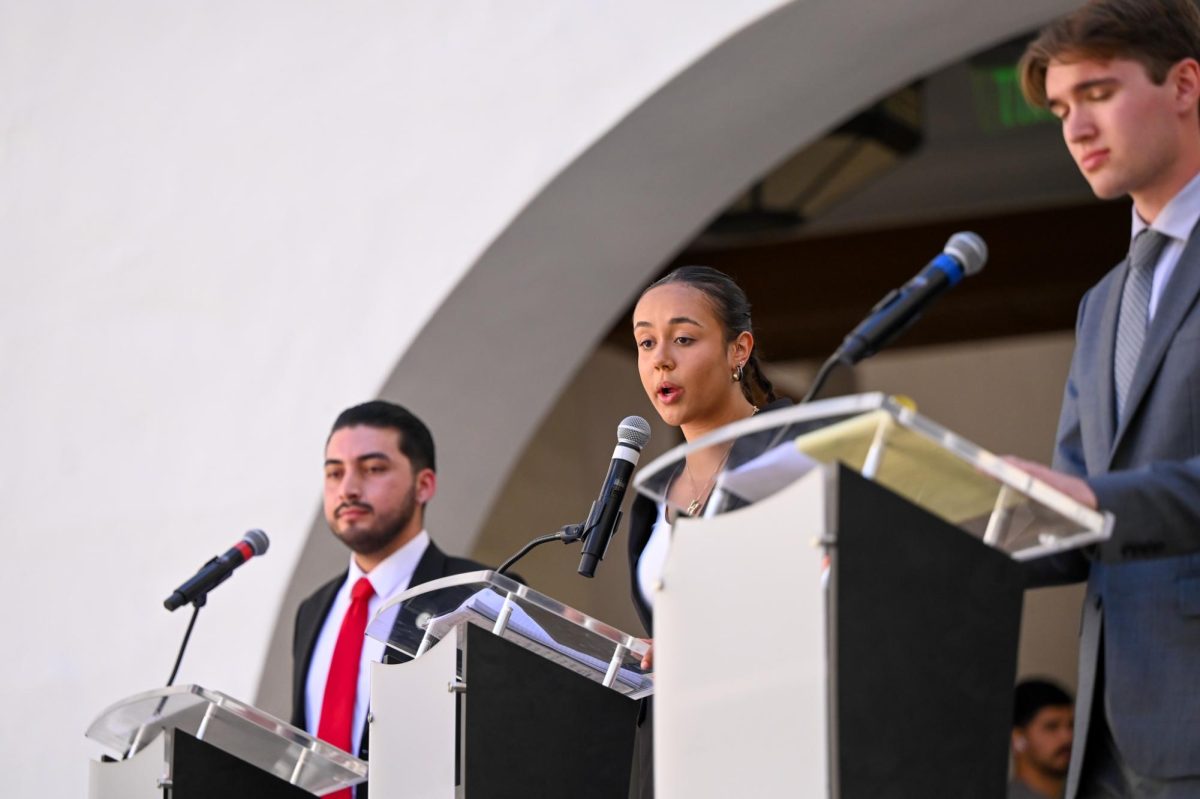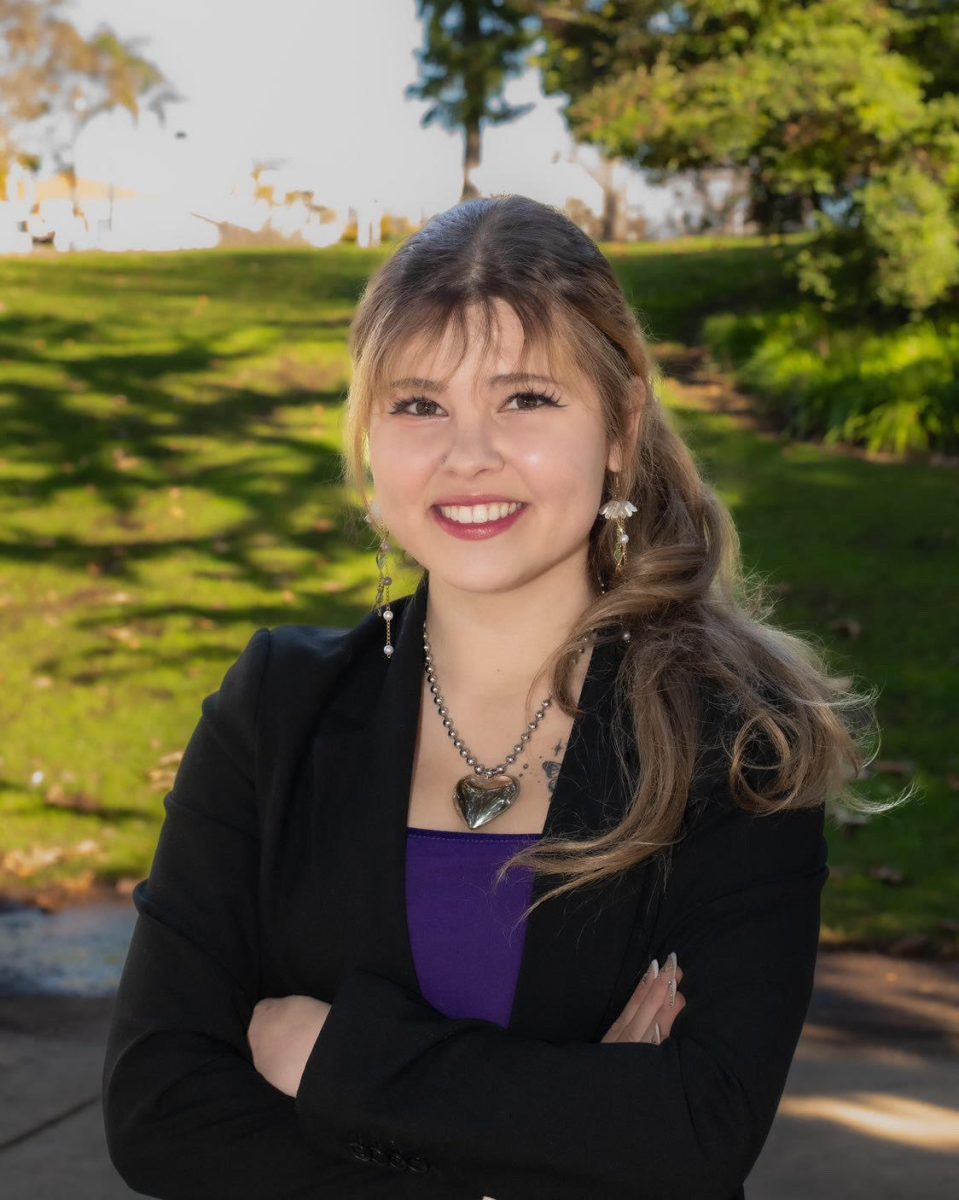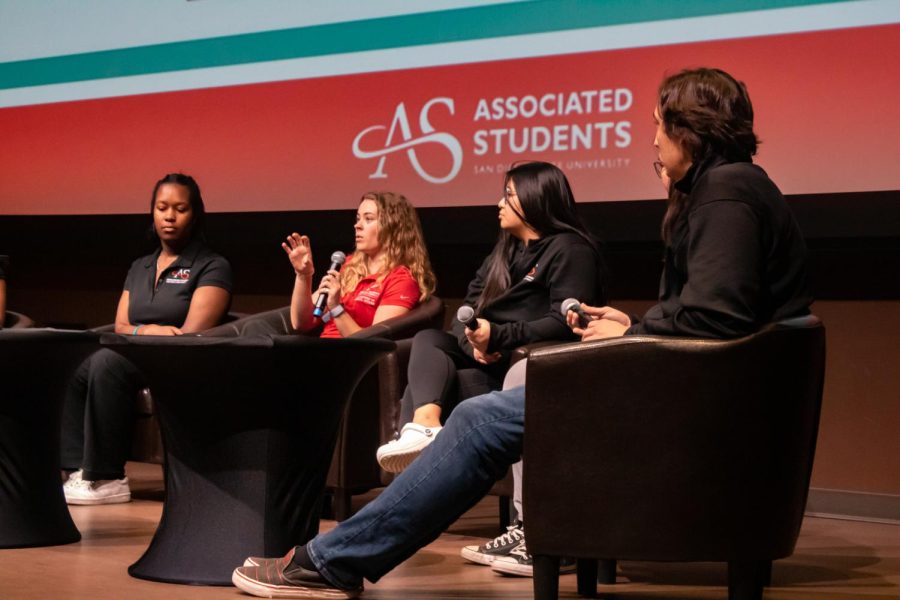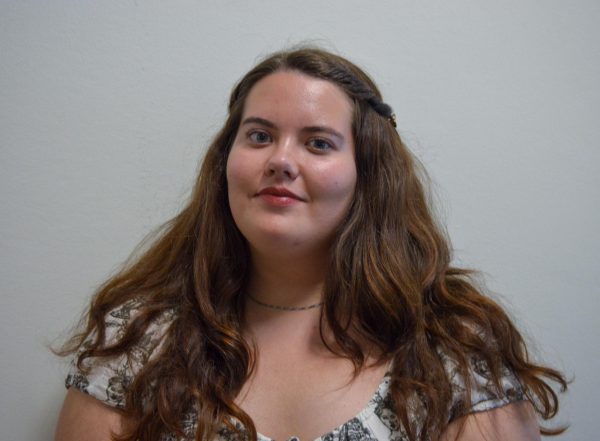Pronouns: He/Him/His
Slate: Our SDSU
Year: 3rd Year
Major: Communications
Why did you decide to run for this position?
Coming into my freshman year at San Diego State, I didn’t really know what I wanted to do or what I was going to do. At convocation, I heard former A.S. President Christian L. Onwuka speak and these words inspired me to want to get involved in the organization that is causing so much change for so many different student groups around campus. I hope that one day, I can inspire someone that looks like me to run in this election and feel like they can be the next president or VP of external affairs — no matter their color, gender, race. It is all about your passion for the student body.
What makes you qualified for this position? What is your history with A.S.?
I think what makes me qualified for this position is the ability to be very personable and understand student groups. In this role, you are the highest student voice communicating and liaising with administration. You have to be able to listen and be able to communicate the needs of student communities to administration. Through my roles such as the Student African American Public Relations Chair of the National Association for the Advancement of Colored People and the African Student Union Cultural chair, I have gained a comprehensive view of what a community’s needs are and how every student is diverse with different needs. My leadership experience has led me to this moment in this position where I feel that I’m able not only to convey my feelings, but be able to accurately go into communities and convey the feelings of all student groups to administrations.
What would you like to change at SDSU?
I would like to change the overall support that we provide to our students, both physically and how students feel on this campus. We have a lot of social unrest with all of the racial issues going on in society and on our campus, and we are very reactionary both as a campus and as Associated Students. We need to be more proactive. We need to make sure that students feel that they are supported, not just after an incident happens, but before any incident that can damage the community happens. But we also need to enhance our visibility of our different resources on campus. We have a bunch of different resources, the Economic Crisis Response Team and the CARES program, that aren’t highlighted to their fullest capacity.
Can you name something you like and something you dislike about A.S.?
Something that I like about Associated Students is just how much change you can actually get done. I think a lot of the times when we are in these meetings with committees and administration, we are adding in so much change that will affect students in the long run. On the other side of the token, with all this tangible change that can be made, there is a lack of accessibility for students. Students don’t know how to get involved, where to start, or even if they can just attend a meeting. We need to change the overall narrative of Associated Students being an exclusive organization to it being an inclusive organization.
What will be your top three priorities in this role?
My first priority is to create sustainable relationships with all student communities to understand true student needs. It’s about building those genuine relationships, and a lot of students have seen this as Our SDSU has been doing walk-arounds for our platform. But I don’t want that to be the only time that students see me, I want a sustainable relationship where students feel comfortable coming to me with their issues. Secondly, I want to advocate for a greater allocation of mental health and basic needs services. The way I plan to do that is through the governor’s budget. In my position as VP of External Affairs, we advocated for the governor’s budget to include $15 million to basic needs services for CSUs and $15 million to mental health services for CSUs. I want to make sure that the uses of these funds are very transparent to students. Finally, I want to ensure that there is inclusive programming at the ARC. Women on our campus especially do not feel as comfortable going to the ARC. I want to make sure that there is inclusive programming and that every student feels like they have a space within the ARC to workout. Also, we need programming for adaptive athletics and students with varying abilities.
Why do you think so many positions are running uncontested this year?
We are learning how to be students again. When you have two years of being online, it is hard to then step back in. We have to learn how to put pants back on and go to class! We have to learn how to socialize again. Students are learning how to do that before reaching for high level leadership positions. I want students to know that leadership roles are another way to be successful, other than academics, and build their repertoire of skills.
This interview was edited for brevity and clarity.




